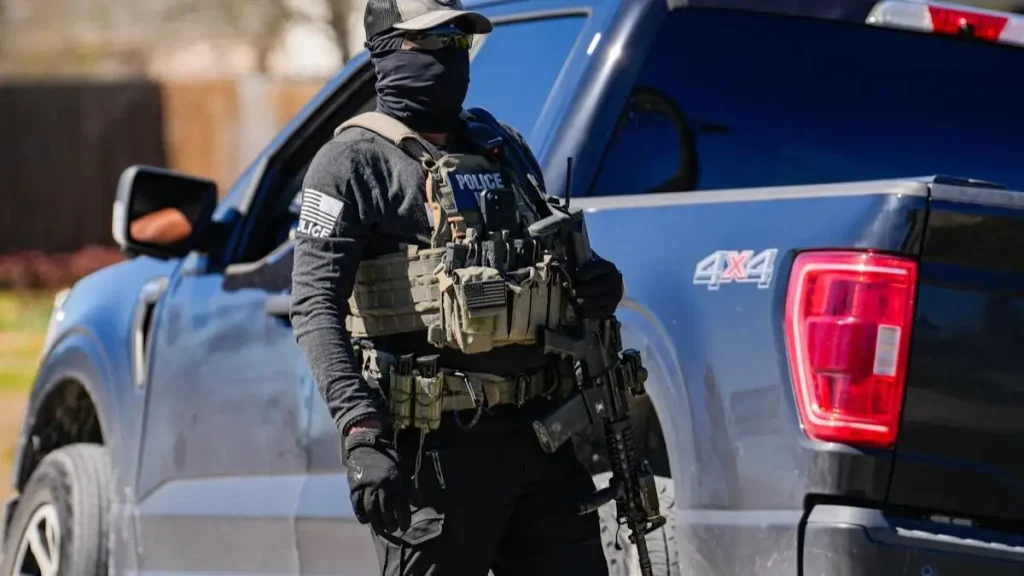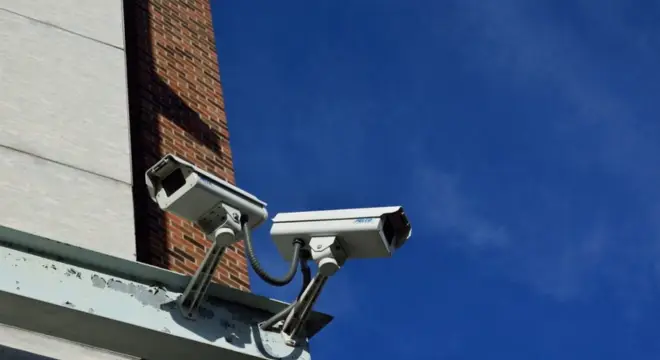ICE Agents’ Controversial Raid in Oklahoma Sparks Debate on Civil Liberties
Home is supposed to be the one place where people feel safest—a space defined by privacy, dignity, and personal rights. But what happens when those rights are challenged not by intruders or criminals, but by the very institutions tasked with upholding the law?
A recent immigration enforcement operation in Oklahoma has brought this question into sharp focus, raising concerns about how far government agencies can—and should—go inside someone’s private space.
This incident isn’t just about immigration policy. It touches on the core of what home security truly means today—not just locks and cameras, but personal freedoms and the right to safety from excessive force or public humiliation.
Summary of the Incident
On April 24, 2024, a disturbing report emerged about an Immigration and Customs Enforcement (ICE) raid in Oklahoma, during which a family was allegedly forced to stand outside in their underwear while agents conducted a search.
According to a detailed report by Newsweek, the family claims they were awakened early in the morning and ordered out of their home without being given the opportunity to dress or understand the full scope of the operation.
The incident has ignited a debate not only about how immigration enforcement is conducted but also about whether basic civil liberties are being compromised during such operations. While ICE has stated that its actions complied with agency protocols, civil rights advocates and community leaders argue that the raid represents a troubling example of government overreach.
Home Security vs. Government Intrusion

This case brings an uncomfortable reality to light: sometimes, the threat to your home’s sanctity doesn’t come from a burglar, but from state-sanctioned intrusion. Regardless of one’s immigration status or legal standing, being forced out of your home with little explanation and without dignity undermines the very concept of home security.
It shifts the conversation from protecting against criminal threats to protecting your rights from those meant to uphold them.
For many homeowners—especially those from immigrant communities—this raises serious concerns. Is your home truly yours if it can be entered and controlled without recourse or transparency? Incidents like these contribute to growing unease among law-abiding residents who fear being caught up in aggressive enforcement actions, even if they have done nothing wrong.
The Legal and Ethical Debate
ICE agents operate under federal authority, often relying on administrative warrants or internal protocols to justify their operations. However, these do not carry the same constitutional weight as judicial warrants signed by a judge.
In many cases, residents are not legally obligated to open their doors unless such a judicial warrant is presented. Yet, enforcement tactics can be aggressive or misleading, causing confusion and fear among targeted individuals and families.
The legality of the Oklahoma raid will likely come under scrutiny, especially if it is confirmed that no judicial warrant was shown or if procedures strayed from standard protocol. Beyond legality, though, lies the ethical question: even if such actions are technically permissible, are they morally justified? Does the goal of enforcing immigration laws warrant stripping a family of basic human dignity?
This situation spotlights the need for stronger oversight and public understanding. Many citizens are unaware of their rights during such encounters, and law enforcement agencies are often not held accountable unless incidents are made public—something that doesn’t always happen without media attention or viral exposure.
We previously covered how a California family’s lack of surveillance led to their home being completely ransacked—it’s a cautionary tale worth revisiting.
Impact on Communities and Public Trust
When incidents like the Oklahoma ICE raid occur, the effects ripple far beyond the individual families involved. They create a climate of fear, particularly among immigrant and minority communities—many of whom are legal residents or citizens. The uncertainty around whether their homes could be next erodes the sense of security that every person deserves in their private space.
More importantly, these actions damage the already fragile trust between communities and law enforcement. Public cooperation with agencies like ICE or local police becomes strained when people feel targeted or disrespected. Even those who are not directly affected may begin to question whether authorities are acting in the public’s best interest or serving political agendas at the cost of civil liberties.
This breakdown in trust is not just a social issue—it’s a security issue. Communities that distrust law enforcement are less likely to report crimes, participate in investigations, or support public safety programs. In the long term, this weakens neighborhood safety and makes it harder for everyone, including officers, to do their jobs effectively.
Practical Takeaways: What Homeowners Can Do

For homeowners concerned about protecting their families—not just from break-ins, but from unexpected and aggressive enforcement actions—there are several proactive steps that can strengthen both security and legal awareness:
- Install Surveillance Cameras: Video footage can serve as evidence if any enforcement action crosses legal boundaries or involves misconduct. Place cameras at main entrances and inside common areas to ensure transparency.
- Understand Your Rights: Many people are unaware that ICE agents need a judicial warrant (signed by a judge) to enter a home without permission. An administrative warrant alone does not give them legal authority to force entry.
- Smart Locks and Door Intercoms: Use smart doorbells and locking systems to verify who is at the door before opening. Never open the door without confirmation of identification and a valid warrant.
- Have an Emergency Plan: Families—especially those in immigrant communities—should develop protocols for what to do if law enforcement comes to the door. This may include staying calm, not opening the door without a proper warrant, and calling a legal advocate or attorney.
- Keep Legal Resources Handy: Have the contact information of a trusted immigration or civil rights attorney saved in your phone. There are also wallet cards and downloadable PDFs available from organizations like the ACLU that outline your rights during ICE interactions.
These improvements don’t just defend against worst-case scenarios—they give homeowners confidence and control. Security today isn’t just about locks and alarms. It’s about being prepared, informed, and empowered to protect your family’s dignity as well as your property.
Suggested Improvements for Home Security and Privacy
The Oklahoma incident is a wake-up call—not just about law enforcement behavior but about how families can reinforce their own environments to feel truly secure. Beyond understanding your rights, there are several holistic and structural improvements homeowners can consider to strengthen both physical and legal security:
- Reinforce Entry Points: High-security locks, anti-kick plates, and door braces add physical strength that can slow down or deter unlawful entries—even those conducted under questionable authority.
- Window Security Film: Applying safety film to windows makes glass harder to break and can prevent quick forced entries during raids or home invasions.
- Privacy Fencing and Lighting: Fences and outdoor motion sensor lights increase perimeter awareness and reduce the visibility of home interiors.
- Digital Awareness: Use smart home tech that notifies you when someone approaches or rings your doorbell, and saves video to the cloud. In sensitive cases, this documentation could be crucial for legal follow-up.
- Legal Workshops or Community Meetings: Homeowners can also benefit from attending community-based training sessions to understand constitutional rights, especially in relation to home searches and law enforcement boundaries.
- Secure Important Documents: Immigration papers, birth certificates, or other legal records should be stored in a safe, secure, and accessible location—preferably one that law enforcement can’t access without a warrant.
These steps don’t just make a house safer—they build confidence, restore a sense of control, and offer peace of mind in an unpredictable world.
Conclusion
The events that unfolded in Oklahoma serve as a powerful reminder that the concept of “home” must go beyond bricks and walls—it must also represent safety, dignity, and rights. No one should feel powerless in their own home, whether due to unlawful entry, policy overreach, or lack of preparedness. By combining legal awareness with practical home security upgrades, homeowners can take back control, foster peace of mind, and stand firm in the face of unexpected intrusions.
Your home should be the one place you never feel vulnerable.
Want to make your home smarter and more secure against all threats—legal or otherwise?
Visit our website for expert guides on home security, real estate protection, smart tech installations, and legal homeownership advice that empowers you.
Stay safe. Stay informed. Build like new.
Disclaimer: This article is for informational purposes only and does not constitute legal advice. Readers concerned about their rights in relation to ICE or law enforcement actions should consult a licensed attorney or a qualified civil rights organization. BuildLikeNew.com is not affiliated with any government entity and does not offer legal representation.


